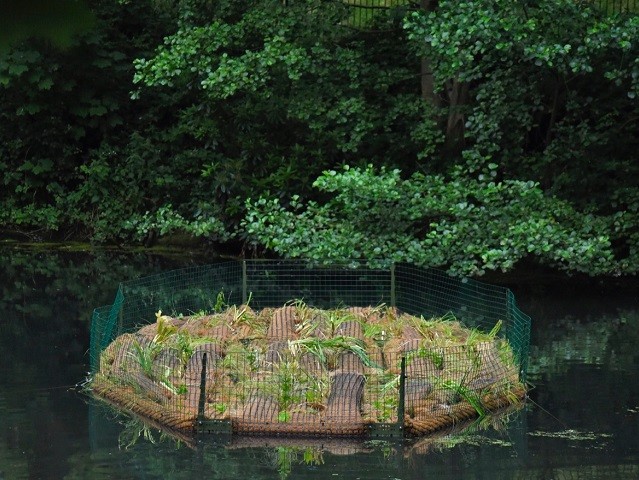A nature-based Liverpool is on the way
To date, 70% of Europe's population lives in cities, a figure which is expected to increase to over 80% in just thirty years. The consequences of such aggressive urbanisation are already tangible, ranging from health issues to environmental disasters. But what we are harming is what can save us, as nature inspires innovative ideas for making our cities more liveable and resilient to climate change. These ideas are called nature-based solutions (NBS) and many examples can be enjoyed since last summer in Liverpool, the English city on the river Mersey which has embarked on a green journey through initiatives such as the URBAN GreenUP project. The NBSs have recently been installed across the city and come in great a variety of formats, namely green walls, ecosystem islands, sustainable drainage systems and tree planting. Their design and installation were overseen by the local URBAN GreenUP partners: Liverpool City Council, Mersey Forest and Liverpool University. Green Walls Green walls have been installed across the front of Parr Street Car Park and at the St John's Shopping Centre. The former consists of a living surface of 132 square meters of fronds, foliage and flora, for a total of more than 12,000 plants and flowers (watch this video). The latter is one of the longest in the UK, being 65 meters long filled with over 14,000 evergreen plants (watch this video). Both walls will improve air quality (by releasing oxygen and capturing particles from vehicles exhaust fumes) and enhance biodiversity (by encouraging more pollinating insects). They may also have an impact on the cooling and insulation of the buildings on which they are installed. "The living green wall will be good for attracting pollinators – so increasing biodiversity, as well as adapting to climate change and for business," says Clare Olver from The Mersey Forest on the green wall on the exterior of St John's Shopping Centre. "There are 17 species of plants in the living green wall which Biotecture has designed in co-ordination with the Bumblebee Conservation Trust. We are looking forward to seeing how this, together with the new roof garden at Royal Court Theatre, can benefit both wildlife and people right in the heart of our city." Read more: • A Small Piece of a Big Puzzle at Parr Street • Living green wall on Parr street • Living green wall installed in Liverpool Ecosystem islands Two ecosystem islands have been launched at Liverpool's historic waterfront at Wapping Dock and Sefton park. The one at Wapping Dock is a saltwater/estuarine ecosystem with a surface of 63 square meters (watch this video). It has a submerged shingle shelf for small fish and a submerged 'reef' made of empty oyster shells in cages, and it is planted with saltwater tolerant reeds, grasses and flowering plants. The goal of the installation is to boost biodiversity in the dock waters, to signpost the new green route and to raise awareness of the role of nature-based solutions. The 25 square meter freshwater floating ecosystem island in Sefton park (watch this video) will also improve local biodiversity by providing a home for pollinators. Moreover, the roots of the planted reeds will help clean the water and improve water quality. "Green infrastructure has to be a key part of current and future cities," said Juliet Staples from Liverpool City Council in an interview with Biomatrix Water, the ecological technology company which installed the saltwater Wapping dock island. "Not only does it make for a more pleasant city but the environmental, social and economic benefits that green and blue infrastructure provides also help cities adapt to future predicted climate change impacts and become more resilient. In this context, floating ecosystems can form part of a suite of options for cities wanting to increase their biodiversity and make their cities more liveable." Read the full article on: https://www.urbangreenup.eu/news--events/news/a-nature-based-liverpool-is-on-the-way.kl
Keywords
climate change, nature-based solutions, green walls, air quality, enhance biodiversity, ecosystem island, tree planting, sustainable drainage system



